
So Good They Can't Ignore You: Why Skills Trump Passion in the Quest for Work You Love
Cal Newport, Dave Mallow, et al.
4.5 on Amazon
37 HN comments

The Richest Man in Babylon: Original 1926 Edition
George S. Clason , Charles Conrad, et al.
4.7 on Amazon
37 HN comments

Basic Economics
Thomas Sowell
4.8 on Amazon
35 HN comments
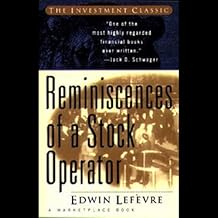
Reminiscences of a Stock Operator
Edwin Lefevre, Rick Rohan, et al.
4.6 on Amazon
35 HN comments
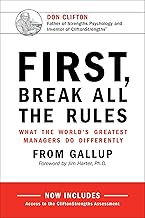
First, Break All the Rules: What the world's Greatest Managers Do Differently
Jim Harter, Marcus Buckingham , et al.
4.6 on Amazon
34 HN comments
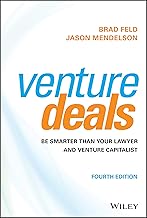
Venture Deals: Be Smarter Than Your Lawyer and Venture Capitalist
Brad Feld and Jason Mendelson
4.7 on Amazon
31 HN comments

Delivering Happiness
Tony Hsieh
4.6 on Amazon
30 HN comments
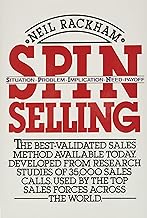
SPIN Selling
Neil Rackham
4.5 on Amazon
30 HN comments

Nickel And Dimed: On (Not) Getting By In America
Barbara Ehrenreich
4.3 on Amazon
29 HN comments

The Five Dysfunctions of a Team: A Leadership Fable
Patrick Lencioni
4.6 on Amazon
28 HN comments

The Startup Owner's Manual: The Step-By-Step Guide for Building a Great Company
Steve Blank and Bob Dorf
4.5 on Amazon
27 HN comments

Give and Take: A Revolutionary Approach to Success
Adam M. Grant PhD, Brian Keith Lewis, et al.
4.6 on Amazon
25 HN comments

Titan: The Life of John D. Rockefeller, Sr.
Ron Chernow
4.7 on Amazon
23 HN comments

The Challenger Sale: Taking Control of the Customer Conversation
Matthew Dixon and Brent Adamson
4.5 on Amazon
22 HN comments
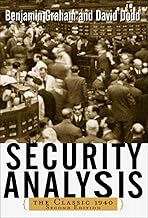
Security Analysis: Principles and Techniques
Benjamin Graham and David Dodd
4.7 on Amazon
22 HN comments
eruonSep 27, 2011
Isn't the top book on value investing "Security Analysis", and "The Intelligent Investor" is just the popular science alternative?
arthurcolleonFeb 22, 2020
orangethirtyonApr 4, 2013
orangethirtyonMar 19, 2013
Re-reading it for the one millionth time. Always learn something new from it.
rrivalonJan 30, 2008
orangethirtyonJan 3, 2013
brentronOct 10, 2008
eruonSep 23, 2010
If stocks have gone down, that's not the right time to sell. When stocks are valued much more by the market than you think is reasonable, then selling might be interesting.
Avoid transaction costs and other fees as much as possible.
MutedonSep 2, 2015
Investing:
1) The Intelligent Investor - Benjamin Graham
2) Security Analysis - Benjamin Graham
3) Common Stocks and Uncommon Profits - Philip Fisher
4) The Little Book of Common Sense Investing - John Bogle
5) The Most Important Thing - Howard Marks
Economics:
1) An Inquiry into the Nature and Causes of the Wealth of Nations - Adam Smith
2) Where Are the Customers' Yachts: or A Good Hard Look at Wall Street - Fred Schwed
3) stuff by John Maynard Keynes (never heard him mention exact title)
Others:
1) Poor Charlie's Almanac - Charles Munger
2) Business Adventures - John Brooks
3) How to win friends and influence people - Dale Carnegie
Then there are some things I've never heard him explicitly recommend but I think are definitely worth reading:
1) Letter to shareholders (all of them, you can find the ones of his partnership and earlier ones online)
2) The Snowball - Alice Schroeder
3) Tap Dancing to Work - Carol Loomis
(There are tons of books on Buffett, but these two are friends of his)
Also, if you ever go to his shareholders meeting, there's a whole list of "Buffett approved books". Some that I can remember from this years meeting (other then the ones mentioned above):
1) all of them found on https://www.poorcharliesalmanack.com/
2) Dream Big - Cristiane Correa
3) a bunch more that I cant remember
Finally on his investing, he has laid out a bunch of times what he believes is best for ordinary people who aren't going to devote most of their time to investing namely, buy a low cost index fund (he recommends Vanguards, I believe it was this one https://personal.vanguard.com/us/funds/snapshot?FundId=0540&... )
I'm not quite sure why so little people (that I know) listen to him. It seems that people want to show that they can outperform the market, but rarely do.
mmhsiehonMar 28, 2020
Security Analysis by Graham and Dodd
pk3onApr 9, 2017
It's not that you couldn't make a _pretty-reasonable_ estimate, it's just that the ecosystem is much improved and easier to roll up for the indices we follow today. The Wilshire is from the 70s and the first flavor of the S&P came 30 years after the Dow (and was 'only' 90 firms). If you read Security Analysis (first edition: 1934) you can still see some of this in action; it mentions how only some statistical services (paid!) would calculate/estimate the current number of shares outstanding.
simplyauseronJuly 17, 2008
Books on Wealth
Investing books in this order
Do NOT read
CapriciousCptlonFeb 22, 2020
* Then read this, all of it, except perhaps most of the exhibits: Most recent Costco annual report (10-k).
* Berkshire Hathaway annual letters, Transcripts from Berkshire annual meetings
* Great follow-up: Financial Shenanigans, Fourth Edition: How to Detect Accounting Gimmicks and Fraud in Financial Reports (Schilit, Howard, Perler, Jeremy, Engelhart, Yoni, McGraw-Hill Education)
* Absolute classic (but needs to be updated): The Intelligent Investor: The Definitive Book on Value Investing. (Graham)
* On investing in general: Margin of Safety (Seth Klarman)
* Great intro to valuation, with the caveat that modern finance and concepts like WACC may not necessarily be useful to your investing strategy: Valuation: Measuring and Managing the Value of Companies (Tim Koller, Marc Goedhart, David Wessels)
* Another classic (but needs to be updated): Security Analysis (Graham and Dodd)
I've read those in more-or-less that order, interspersed with plenty of other useful books that you'll discover depending how deep you go. The most important thing is reading 10-ks.
eruonNov 29, 2010
In the US has some low fee index funds. In Germany I used an ETF of max-blue.
Just find a low fee diversified index fund, and then get back to your normal work. (Unless you enjoy playing the stock market, than there's nothing wrong with active investment. Just as some people enjoy playing the lottery (only the expected value of active investment isn't as dismal as playing the lottery).) Benjamin Graham's "Security Analysis" is a good primer, if you really want to get into stock or bond trading, or are just interested on an intellectual level. It's a hard book.
Make sure you use a tax efficient way to invest. If you can invest with pre-tax money, do so.
yosephonNov 14, 2010
I started the same journey a few years ago, and looked at every approach under the Sun. The only one that made sense for me was value investing.
Since figuring that out, I never looked back. Remember "trading" is not the answer. "Investing" is.
To start off, here are the books I would recommend:
1. The Intelligent Investor by Benjamin Graham
2. F Wall Street by Joe Ponzio (Get a taster here: http://www.fwallstreet.com/article/25-calculating-the-value-...)
3. Security Analysis by Benjamin Graham
Feel free to shoot me an email if you have any questions. Email is in my profile.
jroesonOct 27, 2010
Given what you've said, should I bother reading it if picking at random is going to work out better in the end? Have you read it and can make a recommendation as to its usefulness? In the first few chapters they identified the issue of massive amounts of information, but the book still charges on.
If you do think it's still worthwhile to continue reading it, do you have any suggestions for some introductory books that can help me understand some of the financial slang they use? :)
abhimskywalkeronNov 2, 2015
Was looking to get to learn both the theory and real-life implementations of this financial systems & processes. Hence wanted to start with Corporate Finance as it looked the most generic and seemed more like broad revision of stuff i already learned in a lot of econ classes and some management electives I took in college, with some additional knowledge to build good skeletal/context structure of the field and various agents involved, which I can later fill in with and place new concepts i would learn in the two other books.
Then next logical step seemed like getting to know ins and out of the financial instruments of more complex nature hence Hull seemed good to start with. (Also the fact that I read first few chapters in college and quite liked them then...)
And then Security Analysis seemed like a good way to look at all of the above learnt info in more analytical way specifically from POV of an investor.
Also as suggested in the other comment "Trading and Exchanges" by Harris is definitely going on this list of books to finish for me to get better practical implementation understanding.
As of now quant side of finance seems most interesting, but again haven't explored all other roles/areas fully so can't say for sure as yet where would I like to work.
A finance nOOB question... is there something like a full-stack finance engineer? Closest seems to be a quant guy...
eruonSep 23, 2010
I recommended Security Analysis because it is hard reading -- we are on Hacker News here.
If you do not have time or inclination to read Security Analysis (or some other heavy weight text), perhaps you should just buy some index fund instead of picking stocks. (That's what I did by the way, despite having read that book.)
regularfryonMar 14, 2020
mmaunderonDec 19, 2011
Finance and accounting for non-financial managers. A great intro for beginners.
http://www.amazon.com/Essentials-Finance-Accounting-Nonfinan...
A first year accounting textbook like:
http://www.amazon.com/Accounting-Principles-Jerry-J-Weygandt...
Then either buy a book on QuickBooks or put yourself on a course. QuickBooks is the best accounting software for startups by far. Only dive into QB once you have a good grasp of accounting principles because it abstracts away the basic accounting equation and double entry system and will give you a false sense of security.
Then to get a solid grasp of finance and how investors focusing on fundamentals view your business, read Security Analysis by Graham and Dodd. The '09 edition has some wonderful additions and updates from the finance gods.
The financial statements of public companies are available at sites like ycharts.com and I recommend reading them and testing your knowledge by spotting things like dips in net income with no corresponding dip in revenue and figuring out why.
What I've described above is about 2000 pages of reading. But slowly work through it and you will come out the other side empowered.
notaddictedonNov 3, 2010
The Art Of Probability , Richard Hamming. I find prob/stat frustratingly hard to master. This book is clearing up my confusion chapter by chapter. As an engineer this book appears to be written for someone with exactly my level of knowledge which helps a lot.
Conspiracy of Fools , Kurt Eichenwald. Very entertaining ... shining examples of what not to do.
Security Analysis, 1934 Edition, Graham and Dodd. They authors are exquisitely clear thinkers. I don't know how useful the financial information is because it is 80 years old.
mitchelldeacon9onMar 14, 2020
Arrighi, Giovanni (1994) The Long Twentieth Century: Money, Power and the Origins of Our Times
Brealey, Myers, Allen (2011) Principles of Corporate Finance, 10th ed.
Bruck, Connie (1988) Predators' Ball: Inside Story of Drexel Burnham and Rise of Junk Bond Raiders
Fisher, Philip (2003) Common Stocks and Uncommon Profits and Other Writings, 2nd ed.
Fridson, Martin and Fernando Alvarez (2002) Financial Statement Analysis, 3rd ed.
Graham, Benjamin, J. Zweig, D. Dodd (2006/08) Intelligent Investor, rev ed; Security Analysis, 6th ed.
Greenblatt, Joel (1999) You Can Be a Stock Market Genius
Greenwald, Kahn, Sonkin, Biema (2001) Value Investing: From Graham to Buffett and Beyond
Henwood, Doug (1997) Wall Street: How It Works and for Whom
Levitt, Arthur (2003) Take on the Street: How to Fight for Your Financial Future
Lewis, Michael (2010/1989) Big Short; Liar's Poker
Lynch, Peter and John Rothchild (2000) One Up on Wall Street, 2nd ed.
Mishkin, Frederic (2004) Economics of Money, Banking and Financial Markets, 7th ed.
Taleb, Nassim Nicholas (2005/10) Fooled by Randomness, 2nd ed.; Black Swan: Impact of the Highly Improbable, 2nd ed.
Vilar, Pierre (1976) A History of Gold and Money: 1450-1920
Tracy, John A. (2009) How to Read a Financial Report: Wringing Vital Signs out of the Numbers, 7th ed.